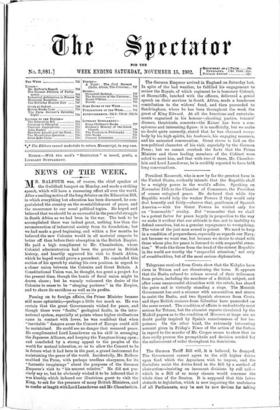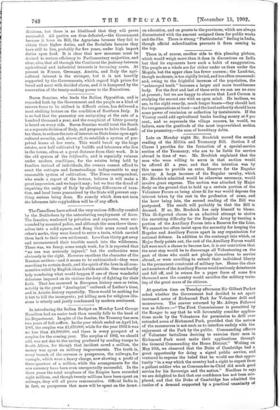The German Tariff Bill will, it is believed, be dropped.
The Government cannot agree to. the still higher duties upon food which the . Agrarians wish to impose, and the Socialists resist the duties fixed in the Bill by a method of obstruction—insisting on incessant divisions by roll call— which in a Bill of so many clauses would consume the Whole time of the Session. It is supposed that this latter obstacle to legislation, which is now impairing the usefulness of all Parliaments, may be met by new devices for taking divisions, but there is no likelihood that they will prove successful. All parties are thus defeated,—the Government because it loses its Bill, the Agrarians because. they fail to obtain their higher duties, and the Socialists because they have still to live, probably for five years, under high import duties upon food. It is clear that new measuxes must be devised to restore efficiency to Parliamentary majorities, and clear, also, that all through the Continent the jealousy between agricultural and industrial interests is becoming acute. At present in France, Germany, Austria, and Italy the agri- cultural interest is the stronger, but it is not heartily supported by the Governments, which regard high prices for bread and meat with decided alarm, and it is hampered by the reservation of the treaty-making power to the Executives.























































 Previous page
Previous page